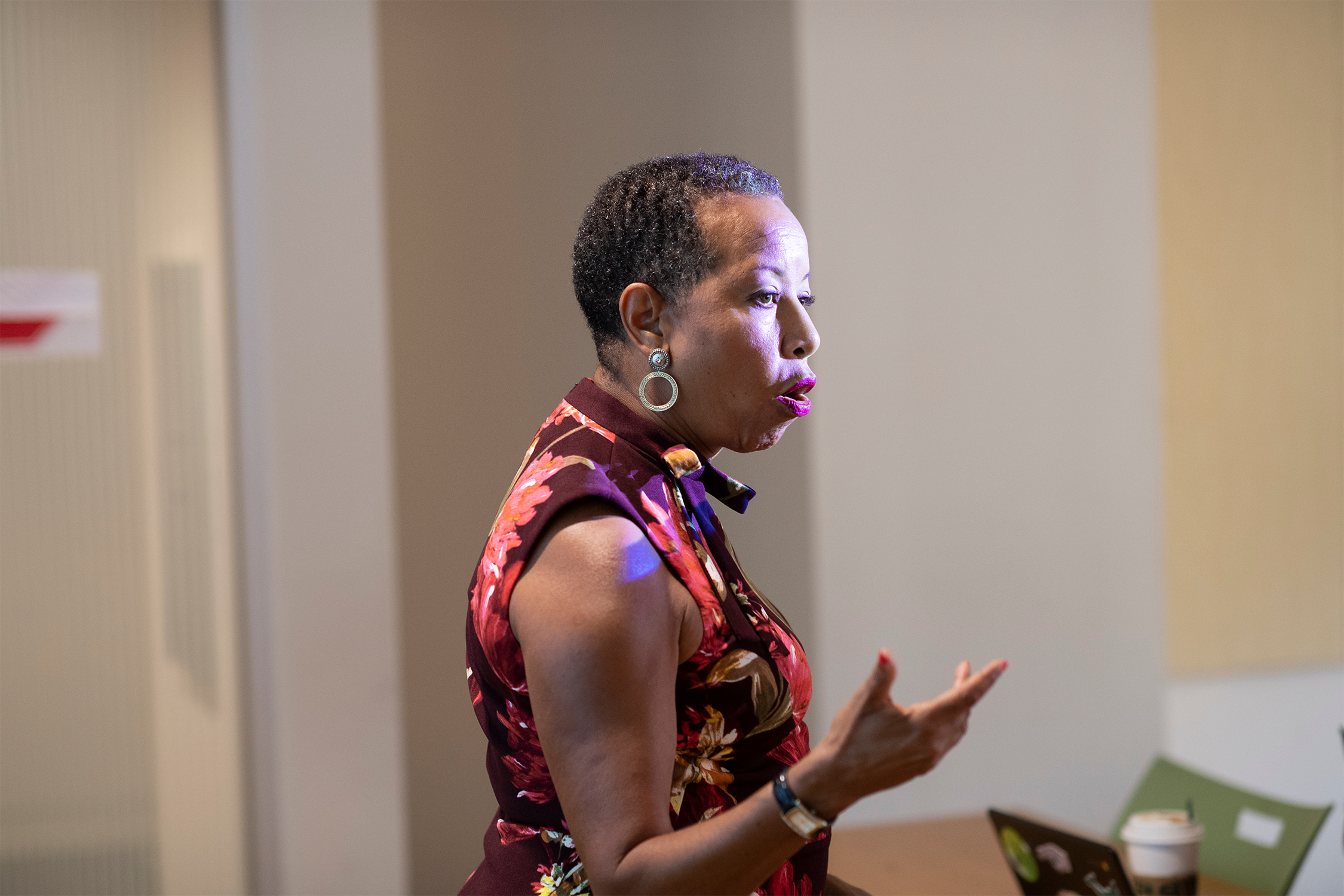It is normal to have complex emotional reactions to the current national crisis and the multiple killings of unarmed black people. There have undeniably been far too many black people lost to senseless racial violence and police brutality in the recent past, and yet there have not been substantive meaningful actions to address police reform and systemic racism on a national level. Although this list is not exhaustive, the individuals who died due to racial violence in the recent past are acknowledged here with links to their tragic stories. Rayshard Brooks. George Floyd. Breonna Taylor. David McAtee. Ahmaud Arbery. Bothem Jean. Atatiana Jefferson. Jonathan Ferrell. Renisha McBride. Stephon Clark. Jordan Edwards. Jordan Davis. Alton Sterling. Aiyana Jones. Mike Brown. Tamir Rice. Clementa C. Pinckney. Cynthia Marie Graham Hurd. Susie Jackson. Ethel Lee Lance. Depayne Middleton-Doctor. Tywanza Sanders. Daniel L. Simmons. Sharonda Coleman-Singleton. Myra Thompson. (all nine were murdered in their Charleston, SC, church). Trayvon Martin. Sean Bell. Oscar Grant. Sandra Bland. Philando Castile. Corey Jones. John Crawford. Terrence Crutcher. Keith Scott. Clifford Glover. Claude Reese. Randy Evans. Yvonne Smallwood. Walter Scott. Eric Garner. Freddie Gray. Alberta Spruill. Amadou Diallo. Timothy Thomas. Countless other killings have not been publicized and unfortunately, the killing of unarmed black people continues.
unarmed black people. There have undeniably been far too many black people lost to senseless racial violence and police brutality in the recent past, and yet there have not been substantive meaningful actions to address police reform and systemic racism on a national level. Although this list is not exhaustive, the individuals who died due to racial violence in the recent past are acknowledged here with links to their tragic stories. Rayshard Brooks. George Floyd. Breonna Taylor. David McAtee. Ahmaud Arbery. Bothem Jean. Atatiana Jefferson. Jonathan Ferrell. Renisha McBride. Stephon Clark. Jordan Edwards. Jordan Davis. Alton Sterling. Aiyana Jones. Mike Brown. Tamir Rice. Clementa C. Pinckney. Cynthia Marie Graham Hurd. Susie Jackson. Ethel Lee Lance. Depayne Middleton-Doctor. Tywanza Sanders. Daniel L. Simmons. Sharonda Coleman-Singleton. Myra Thompson. (all nine were murdered in their Charleston, SC, church). Trayvon Martin. Sean Bell. Oscar Grant. Sandra Bland. Philando Castile. Corey Jones. John Crawford. Terrence Crutcher. Keith Scott. Clifford Glover. Claude Reese. Randy Evans. Yvonne Smallwood. Walter Scott. Eric Garner. Freddie Gray. Alberta Spruill. Amadou Diallo. Timothy Thomas. Countless other killings have not been publicized and unfortunately, the killing of unarmed black people continues.
The recent senseless killing of George Floyd seems to have been the tip of the iceberg, the catalyst for a movement to fight systemic racism, police brutality, racial violence, and racial inequities. Many of us want to continue to believe in America and its promises, but wrestle with the fact that the country continues to betray our people. Centuries of enslavement, familial separation, lynching, partial citizenship, segregation, the denial of basic civil rights, the assumption of black inferiority, systemic racism, and countless other forms of oppression continue to negatively impact black people in the U.S., often on a daily basis, both directly, as well as vicariously, through intergenerational trauma and family history.
These experiences leave psychological battle wounds, scars, pain, and injuries on personal and collective levels (Geter, 2018; Hardy, 2013) , and research provides evidence that racism and discrimination can contribute to heightened stress, depression, and anxiety (Williams & Mohammed, 2013; Hudson et. al, 2016; Drexler, 2017; Hudson et. al, 2016; Tamika et. al, 2017; Tynes, 2008) Williams & Mohammed, 2013). These experiences can also trigger issues such as heightened stress, internalized racism, self-loathing, self-sabotage, post-traumatic slave syndrome, entrenchment in intergenerational patterns, destructive anger, fear of success, real and self-imposed glass ceilings, emotional suppression, and identity issues (Hoggard, Byrd, & Sellers, 2012; Soto et al., 2011; Terrell, Miller, Foster, & Watkins, 2006 Tynes et al., 2008).
The process of psychotherapy with a nonjudgmental and validating therapist can help address a myriad of issues, while promoting healing and wellbeing during these disturbing times. Counseling provides an affirming space for reflection, processing of past and present experiences, gaining insight into how your past impacts your present, and making meaningful changes in your life so that you can find happiness and achieve your potential. Therapy, the way I see it, is actually about psychological freedom and liberation – dismantling distorted thoughts and beliefs, gaining awareness of unconscious fears and forces, changing self-sabotaging patterns, and decreasing troubling relationship dynamics that interfere with wellbeing and happiness in one’s current life.
Education can also be a transformative experience that generates increased self-awareness, professional and personal fulfillment, and social action. In pursuit of higher education, UDC Firebirds constantly defy negative stereotypes, acquire jobs needed to enter the middle class, break limiting intergenerational cycles, and gain knowledge and skills needed to become community, national, and global leaders. Engaging in social activism and community efforts to advance policy and systemic changes that allow for justice, equity, and humane treatment for persons of color can also promote well-being. Research indicates that activism can lead to positive psychological outcomes such as a sense of empowerment, strengthened social identity, and enhanced sense of meaning and purpose (Dwyer et al, 2019; Van et al, 2012).
The recent events of police brutality undeniably caused a crisis in this country, perhaps an overdue one. Centuries of sinful, shameful injustices, systems, and structures that oppress blacks are finally being acknowledged. Like a phoenix that rises, let us channel our collective hardship, struggle, and pain into energy to effect change, confront racism, maximize our voting power, and demand equity. During this time, and always, we hope that UDC Firebirds harness the fuel and drive needed to persist in your efforts to reach your goals, create the life you deserve, use your knowledge and talents to make a better future. Let us unite in hope that the U.S. can one day be a just society in which all Americans can exercise the right to pursue life, liberty, and the pursuit of happiness, and continue to do our part in the fight to rise above racism and “social injustice”.
References
Drexler, J. (2017). Internalized Racism and Past-Year Major Depressive Disorder Among African Americans: the Role of Ethnic Identity and Self-Esteem. Journal of Racial and Ethnic Health Disparities 4:4, 659-670.
Dwyer, P.; Chang,Y., Hannay, J.; Algoe, S. (2019). When does activism benefit well-being? Evidence from a longitudinal study of Clinton voters in the 2016 U.S. presidential election. PLoS ONE 14(9): e0221754.
Geter, H. (2018). Theater of forgiveness. Retrieved from https://longreads.com/2018/11/02/theater-of-forgiveness/
Hardy, K. V. (2013). Healing the hidden wounds of racial trauma: Enhancing professional and research training. Reclaiming Children and Youth, 22, 24–28.
Hoggard, L. S., Byrd, C. M., & Sellers, R. M. (2012). Comparison of African American college students’ coping with racially and nonracially stressful events. Cultural Diversity and Ethnic Minority Psychology, 18, 329–339. https://doi.org/10.1037/a0029437
Hudson, D.H., Neighbors, W., Geronimus, A.T., Jackson, J.S. (2016). Racial Discrimination, John Henryism, and Depression Among African Americans. Journal of Black Psychology 42:3, 221-24
Soto, J. A., Dawson-Andoh, N. A., & BeLue, R. (2011). The relationship between perceived discrimination and generalized anxiety disorder among African Americans, Afro Caribbeans, and non-Hispanic Whites. Journal of Anxiety Disorders, 25, 258–265. https://doi.org/10.1016/j.janxdis.2010.09.011
Tamika C. B., Zapolski, S.F., Hsu, W., Barnes, J. (2016). What Can Parents Do? Examining the Role of Parental Support on the Negative Relationship Among Racial Discrimination, Depression, and Drug Use Among African American Youth. Clinical Psychological Science 4:4, 718-731.
Terrell, F., Miller, A. R., Foster, K., & Watkins, Jr., C. E. (2006). Racial discrimination-induced anger and alcohol use among Black adolescents. Adolescence, 41, 485–492.
Tynes, B., Giang, M., Williams, D., & Thompson, G. (2008). Online racial discrimination and psychological adjustment among adolescents. Journal of Adolescent Health, 43, 565–569.
Williams, D. R. & Mohammed, S. A. (2013). Racism and health I: Pathways and scientific evidence. American Behavioral Scientist, 57(8), 1152–1173.
Van, Z.; Leach, C.W.; Spears, R. (2012). Protesters as “passionate economists”: A dynamic dual pathway model of approach coping with collective disadvantage. Personality and Social Psychology Review, 16, 180-199.







 unarmed black people. There have undeniably been far too many black people lost to senseless racial violence and police brutality in the recent past, and yet there have not been substantive meaningful actions to address police reform and systemic racism on a national level. Although this list is not exhaustive, the individuals who died due to racial violence in the recent past are acknowledged here with links to their tragic stories.
unarmed black people. There have undeniably been far too many black people lost to senseless racial violence and police brutality in the recent past, and yet there have not been substantive meaningful actions to address police reform and systemic racism on a national level. Although this list is not exhaustive, the individuals who died due to racial violence in the recent past are acknowledged here with links to their tragic stories.